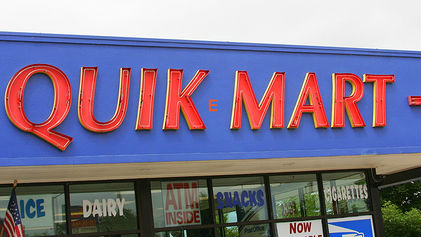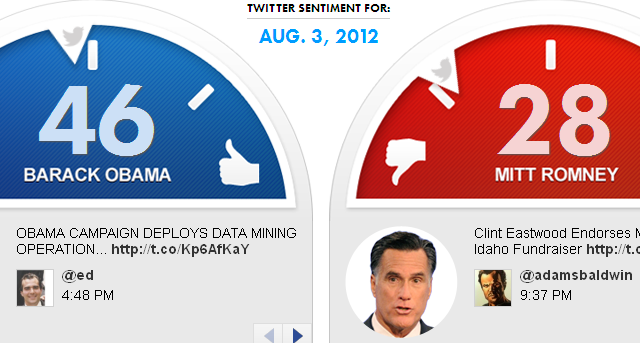The Trouble with Kute Spelling

When I go to my favorite political websites these days I have to see “Chick Fil A” as one of the hot topics.
The CEO’s against same-sex marriage, but he’s also one of the worst offenders of cute spelling. That’s when a corporation or business takes the correct spelling of a word and trademarks its misspelling
Here’s a story about cute spelling: Many years ago, an elderly father suffered a serious, debilitating stroke. One night he sat on the passenger side of his son’s car. Because of the stroke, it was extremely difficult for the father to speak, even simple words, but his mind was sharp. On this evening father and son drove in silence through the outskirts of Chicago. They were running errands and shopping.
A QUIK MART neon sign blinked not too far up the road. The son indicated that he’d turn into the store’s parking lot.
The father discerned his son’s route. He grunted agitatedly. He can’t say NO but he made disapproving gestures and guttural sounds of dismay. The son looked at him, baffled. Was he driving too fast, or too slow; was this the wrong errand? The wrong store? Did he miss his turn? Eventually the son pieced it together. The father choked out the word: “SPELLING….”
It was that willful spelling error, the “QUIK” instead of “Quick.” The father wouldn’t shop there, because of it.
It seems like a small thing, not worth the herculean struggle, to expend your energy to avoid shopping in a store with a misspelled name.
But it matters. We’ve got our monumental, gruesome battlefields of corporations against flesh and blood people, and commerce against commonweal—Citizens United, strip mining, hydrofracking, and oil spills—and then there are the banal affronts on the landscape that most of us don’t truly see anymore.
They become almost naturalized disfigurements, and maybe they’re dangerous for that reason.
Cute spelling is one of them. It’s everywhere. “Quik Mart;” “Sav-A-Lot;” “Git N Zip;” “EZ Cleaners;” “Rite Aid;” “Stuff Yer Face,” “Drive Thru…”
It’s true that Mark Twain celebrated creative spelling as part of the plain-speaking democratic spirit. But he was thinking of spontaneously-occurring spelling mutations, not premeditated, coldblooded errors for commerce.
When they Cute Spell, corporations and businesses are taking the democratic, commonly-held resource of our language, as free as the air, and manipulating it into private contortions to make a Quik Buck.
In Baltimore, everyone ranging from spouse to mail carrier is called “Hon.” It’s cute spelling, in a way, but it’s a democratic form of it, a universal, improvised word of goodwill that Twain might admire.
For many years, Denise Whiting has owned a restaurant in Baltimore called “Café Hon,” and in 2010, she tried to trademark the word hon. Baltimoreans were outraged. They staged protests at the restaurant and howled their disapproval, asserting their shared possession of this word. The yearlong controversy nearly “killed” her and her business, she said.
Like my friend’s father, the Hon protestors sensed that something that belonged to all of us in the public space was being claimed for the commercial gain of only one of us.
Whiting’s “Hon” saga has a happy ending. She removed “hon” from the listing.
“I’ll take it off the register,” Whiting apologized to Baltimore. “It was never mine to have in the first place.” Exactly.
Cute Spelling is an everyday example of the victory of profit over democracy, and of commerce over the public space—in this case, the public space of a shared language.
I’m inclined to see it as the same metaphysic, in miniature, that leads to the idea that someone could plunder a state park for individual profit, or drill for oil on public lands. Isn’t a language every bit as much a resource to be commonly held as the natural landscape?
Capitalism and Democracy are often in tension. The “tragedy of the commons” famously posits an immanent tension between self-interest and the public sphere. Democratic assumptions of equality clash with the inequalities inherent to capitalism. The social domain wars against individual dominion.
It’s not just a theory, though. Relics of these skirmishes of commerce against the commonweal surround us every day. They’re found in strip malls, on billboards, on Styrofoam coffee cups that celebrate Dunkin Donuts—and on a neon Quik Mart sign blinking outside of Chicago, which father and son drove by, without stopping.





